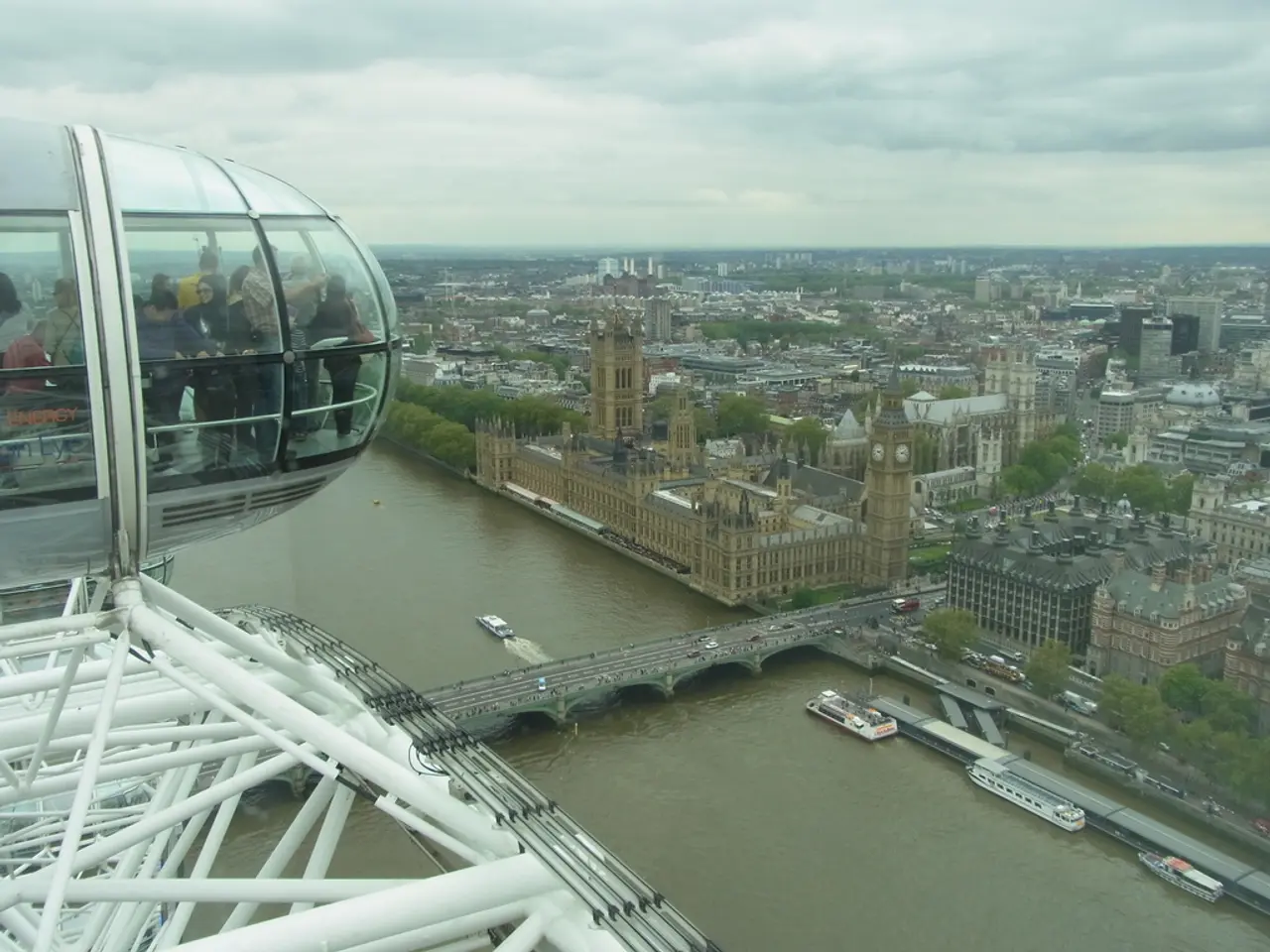Economic Expansion Bill: Boosting Economy, Aiding Workers, and Strengthening Businesses
The One Big Beautiful Bill Act (H.R. 1), a comprehensive piece of legislation focused on tax policy, health coverage requirements, and economic growth, has been enacted after passing through both the Senate and House of Representatives on July 1 and July 3, 2025, respectively. This significant legislation, with a strong pro-growth and pro-worker orientation, has key features and impacts that are shaping the future of American taxation and economic policy.
One of the bill's most notable aspects is the permanent extension of tax provisions from the 2017 Tax Cuts and Jobs Act (TCJA). This includes the modification of tax brackets and lower tax rates, doubled standard deductions for individuals, no taxes on tips or overtime earnings, an increased deduction for seniors, and an enhanced child tax credit. These policies, initially supported by President Trump during his campaigns, are designed to benefit American families and workers.
The bill also supports small businesses and manufacturers by making the small business deduction permanent and expanding it to 23%. This move will help smaller manufacturers compete with larger corporations by lowering their effective tax rates. Additionally, the bill increases the permanent death tax exemption indexed to inflation, benefiting family-owned manufacturers and allowing more of these businesses to remain viable and sustain job creation.
Another critical aspect of the One Big Beautiful Bill Act is its health coverage requirements. Non-elderly, non-disabled adults are required to work or engage in community service for 80 hours per month in order to maintain health coverage, as part of Medicaid reform efforts. However, the legislation also proposes nearly $1 trillion in Medicaid cuts, which has raised concerns about reduced access to healthcare and potential harm to hospitals and vulnerable patients.
The bill also includes tax reforms positively impacting contractors and workers in the construction sector, providing tax certainty and pro-growth policies that allow investment and growth for businesses on Main Street.
By expanding and making permanent the small business deduction, the bill lowers the tax burden on smaller manufacturers and family-owned firms, boosting their competitiveness, investment capacity, and ability to hire new workers. The bill supports economic growth by maintaining lower tax rates for individuals and small businesses, encouraging investment and workforce participation, and fostering a business environment conducive to expansion and job creation.
With permanent tax cuts, no taxation on overtime and tips, increased deductions, and expanded tax credits, the bill promotes policies designed to stimulate economic activity and worker income growth, particularly benefiting middle-class families and Main Street sectors like construction.
In conclusion, the One Big Beautiful Bill Act (H.R. 1) is a comprehensive tax and economic legislation aimed at making permanent key tax cuts, supporting small businesses and family firms, and promoting workforce engagement through health coverage conditions. While it is endorsed by business groups for its tax relief and pro-growth stance, it also includes significant Medicaid spending cuts, raising concerns about healthcare access. Overall, it is positioned as a major legislative effort to foster economic growth, investment, and job creation in the United States.
- The One Big Beautiful Bill Act, with its focus on tax policy, health coverage requirements, and economic growth, has been enacted, marking a significant shift in American taxation and economic policy.
- One of the bill's key features is the permanent extension of tax provisions from the 2017 Tax Cuts and Jobs Act, benefiting American families and small businesses.
- To support small businesses and manufacturers, the bill makes the small business deduction permanent and expands it to 23%, helping smaller entities compete with larger corporations.
- The legislation requires non-elderly, non-disabled adults to work or engage in community service for 80 hours per month for health coverage maintenance, as part of Medicaid reform efforts.
- The bill includes tax reforms that positively impact contractors and construction workers, providing tax certainty and pro-growth policies.
- By making the small business deduction permanent, the bill lowers the tax burden on smaller manufacturers and family-owned firms, boosting their competitiveness and investment capacity.
- With permanent tax cuts, no taxation on overtime and tips, increased deductions, and expanded tax credits, the bill encourages investment, workforce participation, and job creation, particularly for middle-class families and the construction sector.
- Endorsed by business groups for its tax relief and pro-growth stance, the One Big Beautiful Bill Act also raises concerns about reduced healthcare access due to significant Medicaid spending cuts.




